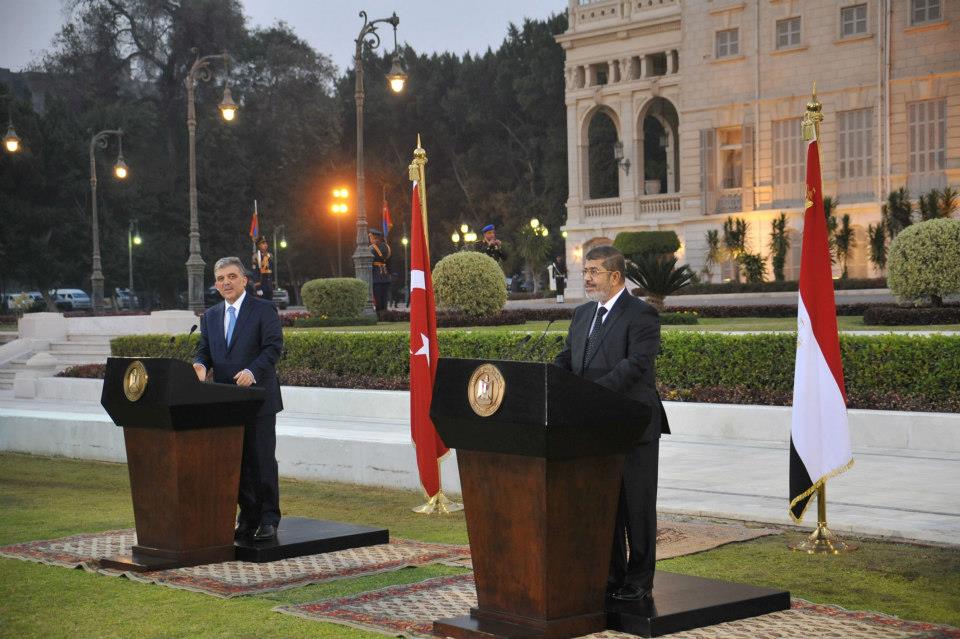
(DNE File Photo)
By Mohammed Adel
Egypt is facing a gas production crisis and is facing difficulties repaying foreign companies that operate in the oil sector. Shell Egypt Chairman, Jeroen Regtien, spoke to Daily News Egypt on the issues facing the company in Egypt’s current climate.
What is the goal for investments to be amassed for the coming fiscal year?
Shell Egypt hopes to amass investments of maximum $ 500m throughout the coming fiscal year, in concession areas for field development and exploration, as compared to around $400m in 2013/2014.
Determining annual investment in the petroleum sector is linked to partners’ economic returns and the feasibility of projects in operation.
What is outlined in the oil and gas production and drilling plan for the coming year?
Shell plans to produce 105,000 barrels of crude oil in the coming year. Shell hopes to increase drilling development and exploratory wells to maintain oil and gas production rates. The company is developing a final plan for the coming fiscal year that will include exploration of a smaller number of wells than this year in order to complete several agreements.
What has happened so far with the Assil and Karam project?
Project implementation has almost been completed in partnership with Vegas Oil & Gas and GDF SUEZ. Implementation is planned to be completed soon.
The Assil and Karam project is one of Shell’s most important initiatives, and the goal of the project is to add 100m cubic feet of gas per day to the region’s production via new production facilities.
The total production of Assil and Karam is estimated to be 150m cubic feet of gas daily.
What has happened so far regarding Appollonia?
Negotiations are currently underway with the Ministry of Petroleum regarding the price of gas produced in Appollnia. Negotiations have centred around a price of $6 for 1m BTUs, as a result of the high cost of drilling and producing gas trapped in the field.
The field’s production shares are divided, with the Egyptian government holding approximately 50%, Shell Egypt 26%, and Apache 24%. Trial production will begin when a price is agreed upon with the Ministry of Petroleum.
What happened in the three new concession areas for which agreements were signed with government last month?
A number of seismic studies are being prepared for concession areas that Shell recently acquired: Northern Matrouh, North Eastern Al-Abyad, and North Alam El-Shawish in the Western Desert.
What is the impact of fixed gas prices that the Egyptian government receives from partners’ shares on investments in the sector?
The fixed gas prices the government received from foreign partners 14 years ago, combined with growing costs for well research, exploration, production and growth, are now economically unfeasible for Shell’s natural gas production projects.
It will be difficult for Shell to continue exploring and developing gas fields in Egypt in light of the current price situation.
Three factors exist that negatively affect foreign partners of the Egyptian government, including: the price of gas; the partners’ shares in production; and companies’ recovering their expenses.
If the shares continue to remain fixed and the process of recovering expenses continues, the government must alter the price of gas for partners in the near future.

(Photo courtesy of Shell Egypt)
Will Shell work in deep water exploration again?
We continue to evaluate all available opportunities. At the moment, our strategy our strategy is to continue focusing on the Western Desert and to maximise the Hydrocarbon potential there.
What has occurred regarding shale oil research and exploration in Shell’s concession area in the Western Desert?
The company ceased shale oil drilling in the Western Desert after drilling a number of exploratory wells and proving the presence of crude in small quantities. The production process is not economically feasible.
Global statistics estimate shale oil reserves to be 650tn tons worldwide, of which only 26tn tons can be obtained. The volume of shale oil that may potentially be produced is over 13 times the amount of known or traditional oil, and will last for 300 years.
However, the matter is a difficult one, as oil reserves considered to be economically feasible exist at rates much lower than these. Investing in most reserves is not a feasible venture due to high costs compared to returns.
What is Shell’s position regarding investing in the Egyptian petroleum sector in light of the current situation?
Egypt enjoys numerous gas and oil production resources on the ground, but it is becoming increasingly difficult for investors to start working. Partners are engaged in ongoing discussions with the government regarding investments in the sector. However, costs have continued to increase over the past few years.
Investment in Egypt depends on the opportunities available and the country’s competitiveness in comparison to other locations. Egypt’s economic situation is a difficult one, and I hope that stability will be achieved in the near future.
Is there any conflict between the policies of Shell Global and Shell Egypt in light of the current situation in Egypt?
Shell Global’s policy does not conflict with our policy in Egypt, which aims at expanding activities and increasing private investment in exploration and production in Egypt.
Efforts are underway to develop hydrocarbons that could potentially be produced in the mining areas in the Western Desert in which the company operates. Shell Egypt has shares in the Badr Al-Din, Obayed, Sitra, and Western El-Shawesh concession areas, where a growing source of Shell’s production is based

(DNE file photo)
What is the history of the company’s work in Egypt?
Shell’s activity in Egypt dates back to 1911, and it is one of the largest petroleum companies operating in Egypt. It is also the first global petroleum company to operate in the Middle East.
Shell works in both exploration and production as well as the marketing and distribution of petroleum products. Shell was one of the first companies to create a service station to fuel cars, as it was keen to develop petroleum fields like Gemsa and Hurghada on the Red Sea. Shell discovered a large amount of petroleum in Hurghada, which later became one of the most important producing fields in Egypt.
Shell’s activities have expanded in Egypt to include construction of the first refinery in the Middle East, located in Suez with a productive capacity of 100,000 tons annually. It remains in operation today under the Nasr Petroleum Company name, as Regtien pointed out.
He explained that the company has extended pipelines from Suez to Gemsa, as the Ras Gharib field was discovered in 1937.
Shell was nationalized in 1964, returning once again to Egypt in 1974 to work in exploration and production. Badr Al-Din and Sitra in the Western Desert were crowned thanks to efforts to drill to reveal petroleum and establish the Badr Al-Din Petroleum Company, which is a joint venture between Shell and the Egyptian General Petroleum Corporation founded in 1983.
In 1990, Shell Marketing Egypt was established to take over all marketing activities, petroleum product distribution, and advanced motor oils production in Shell’s oil blending factory in Sixth October, which was built with the latest technology. In 2013, Shell sold it’s fuel retails and distribution business. A separate legal entity, Shell Lubricants Egypt (SLE) was established for production and distribution of lubricants.
Shell entered the gas distribution field in 2001, where it bought 18% of Natgaz, a company that delivers gas directly to homes and factories. In 2002, Shell Compressed Natural Gas (CNG) was founded to fuel automobiles with gas and convert them to operate on compressed natural gas.
What is the Egyptian Initiative for Energy Conservation (EIEC)?
The Egyptian Initiative for Energy Conservation (EIEC) is a national, independent, energy conservation initiative, founded by the IOCs – mainly Shell, BG, and Apache – in cooperation with both the Egyptian Ministry of Petroleum and the Egyptian Ministry of Electricity and Renewable Energy, to encourage the public to conserve energy using favourable (and simple) energy saving tips. It is the first cooperation of its kind – between public and private sectors – on such a topic.
This will be achieved through a fully-fledged communications campaign (involving PR, creative, and media activities) to create public awareness around the deep-rooted causes of such a crisis, correct a lot of public misconception, and finally encourage the public to conserve energy using simple energy saving tips. The campaign has a brand identity, independent of the consortium supporting it, called belma32oul.
Why did Shell (and other IOCs) embark on this initiative?
Egypt is currently going through an energy crisis; with energy supply not meeting the [constantly] growing demand. As IOCs we already work on the supply side. However, my colleague, IOC CEOs, and I are sponsoring this initiative; [we] see many examples of energy waste around us, and we felt that by promoting energy conservations, the gas and oil we produce would be better used. It is part of our commitment towards Egypt as a country we operate in. It is a serious issue that requires joining of all possible forces to help resolve it.
Why did the government decide to embark in the joint initiative with Shell/IOCs?
Let me first say how pleased I am with the government’s support. It shows deep understanding of the current issue and commitment to address it, working hand-in-hand with members from the private sector (IOCs), to promote an initiative that addresses such a sensitive – now a household – topic to the public. This instates the government’s intention to take a step further: be ‘on the consumer’s side’ to work together to get Egypt through its current energy crisis.
In addition to promoting efficient utilisation of energy (the role of the consumer/public), the initiative also highlights the state’s efforts in providing the appropriate infrastructure, and sufficient amounts of energy resources (the role of the government).
The energy crisis is caused by a gap between demand and supply. We already work on the demand side and we want to impact the supply side too. Because of the subsidies there is a lot of wastage on the demand side. People waste energy because they are not paying a fair price for it. With simple measures, electricity consumption can be reduced by 20%. This requires joint efforts and collaboration by members of the public and private sectors, as well as the civil society.
We believe that that by raising awareness of the importance of energy conservation behaviours, we are contributing to addressing the core of the crisis. Energy conservation is no longer a luxury. We all have a responsibility towards preserving our resources for the generations to come. Our energy resources are valuable and we all need to make sure they are properly utilised, which will eventually benefit each and every one of us.



